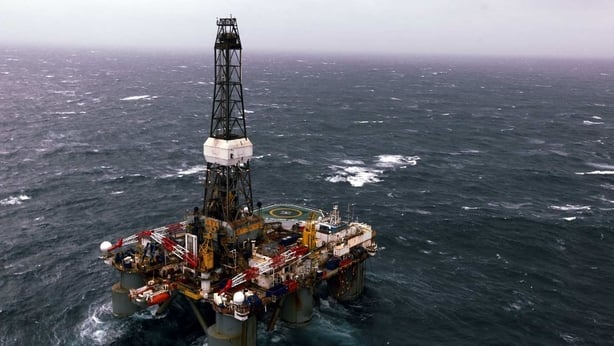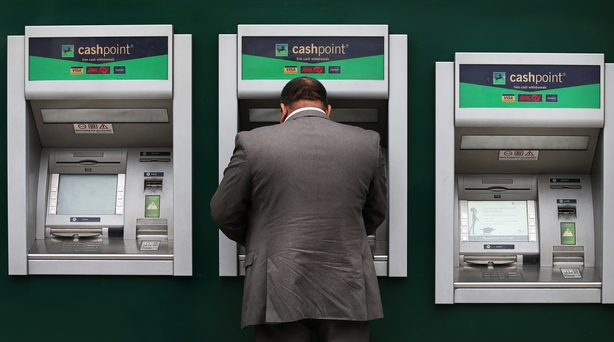Britain raised its official growth forecasts slightly as finance minister George Osborne unveiled the final Budget before the 7 May general election.
Growth for 2015 was forecast to be 2.5%, up from a prediction of 2.4% made in December, Mr Osborne told parliament.
Growth in 2016 is now expected to reach 2.3% compared with 2.2% in the December forecasts made by Britain's Office for Budget Responsibility.
Mr Osborne said the OBR believed growth would hold at 2.3% in 2017 and 2018 before rising to 2.4% in 2019.
The Bank of England has predicted Britain's economy will grow 2.9% this year and in 2016, helped by the plunge in oil prices that is expected to boost consumption.
The OBR also forecast the unemployment rate would fall to 5.3% this year, down from 5.7% in the three months to January, Osborne said.
Mr Osborne also said that Britain is aiming for a lower budget surplus by the end of the decade than it was just a few months ago.
Delivering the Budget statement, he said the surplus was projected to stand at 0.3% of gross domestic product in the 2019/20 financial year.
In similar official forecasts made in December, the surplus in 2019/20 was projected to reach 1% of GDP.
Britain's independent budget forecasters said at the time that to reach that target, public spending would need to fall to its lowest share of GDP since the 1930s.
Mr Osborne claimed today that Britain was "walking tall again". In a nod to the 7 May poll, he said Britain was facing a "critical choice" as he highlighted economic successes.
"Today, I report on a Britain that is growing, creating jobs and paying its way. We took difficult decisions in the teeth of opposition and it worked - Britain is walking tall again, " Mr Osborne told the Commons.
He said that after a collapse greater than almost any country five years ago, in the last year the UK has grown faster than any other major advanced economy.
"Five years ago, millions of people could not find work. Today, I can report: more people have jobs in Britain than ever before".
"Five years ago, living standards were set back years by the Great Recession. Today, the latest projections show that living standards will be higher than when we came to office," he stated.
Workers will be allowed keep more of their earnings before they start to pay income tax, under new Budget measures.
The UK personal tax allowance will be raised to £10,800 in the 2015/2016 tax year, Osborne told parliament, higher than £10,600 as previously announced. It will then rise to £11,000 in 2016/2017.
The government has raised the allowance steadily since it came to power in 2010.
It will also raise the earnings threshold at which people pay the higher rate of income tax to £43,300 by the 2017/18 tax year. Mr Osborne confirmed it will rise to £42,385 this year.
Help for North Sea oil industry announced in budget
The finance minister also announced £1.3 billion of support for Britain's North Sea oil industry, hit by falling prices. Mr Osborne said the industry faced an uncertain future without immediate action.

The measures announced included a cut in petroleum revenue tax from 50% to 35% next year and a promise of new seismic surveys in under-explored areas of the North Sea.
He also said the supplementary charge - which companies pay on their profits - would be cut from 30% to 20%, backdated to January.
"It's clear to me that the fall in the oil price poses a possible danger to the future of our North Sea oil industry unless we take bold and immediate action," Mr Osborne said.
He had faced weeks of pressure from the North Sea oil industry, a major source of income for the Scottish economy, to take action to prop up the industry.
Exploration and production companies operating on the UK continental shelf saw revenues shrink last year to just over 24 billion, the lowest since 1998.
And the UK drinks industry raised a glass to Mr Osborne today after he announced duty cuts on beer, cider and spirits.
Beer duty is to fall by a penny for the third year in a row, while duty on cider, Scotch whisky, one of Britain's biggest exports, and other spirits would fall by 2%. Wine duty was frozen.
UK to raise $13 billion through Lloyds sales in coming year
Britain will raise at least £9 billion selling shares in Lloyds Banking Group in the coming year as it looks to recover £66 billion of taxpayers' money spent bailing out banks in the financial crisis.
The government also said it would sell £13 billion worth of home loans held by bailed out Northern Rock and Bradford and Bingley.

The UK spent £20.5 billion rescuing Lloyds during the crisis of 2007-9, leaving it with a 41% shareholding. Another £45 billion was spent bailing out Royal Bank of Scotland.
As part of further measures aimed at making banks play their part in the UK economic recovery, Mr Osborne said he was increasing the rate of a bank levy to 0.21% of a lender's assets from 0.16%.
The measure, the eighth increase since the levy was introduced in 2011, will raise an additional £900m a year.
The UK government has so far raised £8.5 billion selling Lloyds shares, cutting its stake to under 23%. It said any further sales will be subject to market conditions and getting value for taxpayers.
The government said the bank levy increase and stopping banks from deducting corporation tax from loan insurance and other compensation payments would bring in £5.3 billion the next five years.
The bank levy should bring in £3.6 billion in 2015/16, up from £2.8 billion in 2014/15 and its previous target of £2.9 billion a year.
The government forecasts the bank levy will stabilise at £3.7 billion a year. The tax deduction will cost banks £150-260m a year, it estimated.

